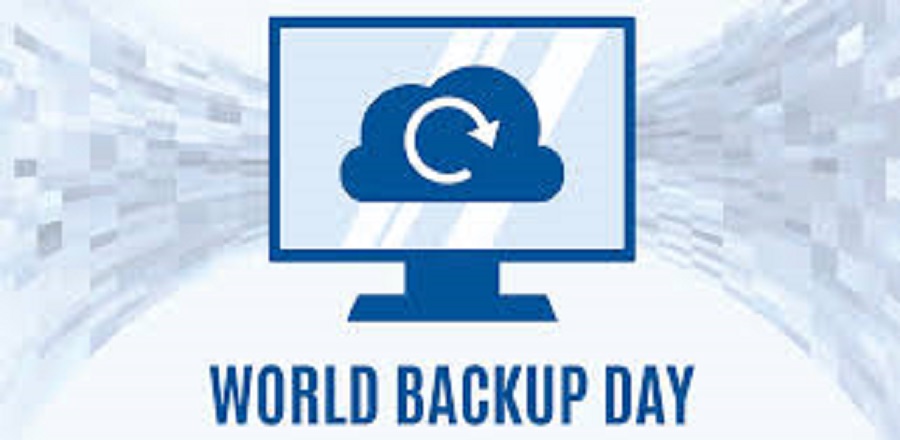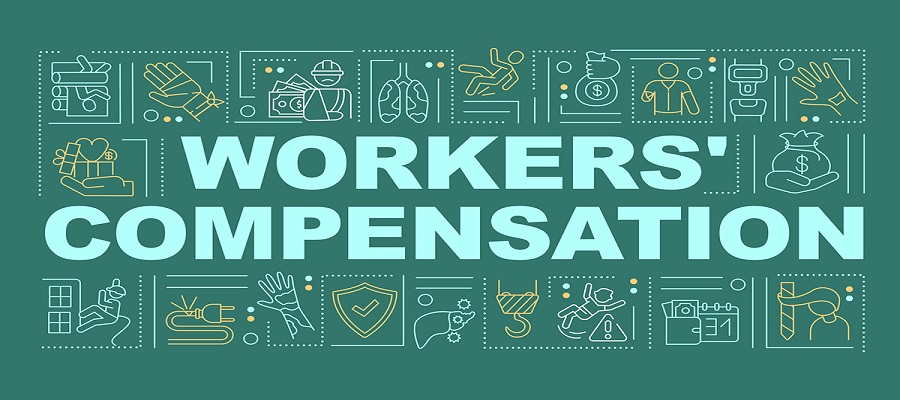E-Business
FG Urges for FinTech Advocacy to Sustain Digital Economy

As Financial Technology (FinTech) proved to be a critical element in the advancement of digital economies globally through its enormous contribution to Gross Domestic Products (GDPs) as well as the alleviation of poverty, the Director General of the National Information Technology Development Agency (NITDA), Kashifu Inuwa CCIE has said that there is need for continuous advocacy of Fintech for the sustainability of Nigeria’s digital economy.

Inuwa who represented Dr Ayo Bakare of the Agency’s Digital Economy Department (DED), said this while delivering his keynote address at the 2nd Africa Cashless Payment Systems Conference themed “Building Cashless Africa” in Abuja.
While describing FinTech as an important sector that needs to be passionately embraced, the NITDA boss stated that Fintech is one of the outstanding sectors where the impact of digital technology is felt in Africa.
Giving accolades to the Foreign Investment Network (FIN) and its partners for organising the event, Inuwa averred that the conference which brings professionals from the financial, technology, judiciary and government sectors together would ensure that information technology is adequately integrated into every sector, particularly the financial sector.
“The collaboration through this Conference allows FinTech companies, vendors of financial solutions, consumers, government, and academia to meet and deliberate on how Africa can develop and promote safe, secure, and seamless digital financial transactions across the continent with minimal disruptions”, he stated.
The DG expressed his confidence that digital financial solutions, cyber security, e-commerce and digital retail banking amongst many others would as the topics of discourse during the event would give new insights into strengthening the country’s cashless economy.
Without mincing words on the advantages of a cashless economy where information is readily available on all flows of income, revenue and expenditure, Inuwa stated that reducing the availability of cash in circulation would exterminate all forms of financial crimes in the country.
“Negative social vices such as theft, corruption, illegal transactions, money laundering, financial crime, and the like are reduced as the availability of cash in circulation reduces. The authentication of all transactions in a cashless payment system has brought transparency and built trust in the ecosystem”, he mentioned.
He asserted that cashless payment system in Africa will further promote the actualisation of the Sustainable Development Goals (SDGs) of eliminating poverty, empowering women and ensuring citizens have access to credit services.
According to Inuwa, “Africa’s revenue from Fintech alone hit between $4.5bn and $6bn in 2022 and Bloomberg report shows that Fintech in Nigeria accounted for $439m in the year 2021. And it is projected to increase by 23.69% in the year 2022. Furthermore, many Fintech Unicorns have emerged in Africa, of which 6 of them are from Nigeria”.
He added that Africa’s huge unbanked population is a major concern that requires urgent intervention and urged the government and Fintech companies to intensify efforts in absorbing them into the trending bandwagon of financial independence and growth.
While reiterating the Agency’s support to the Fintech industry through their developmental regulations with a focus on cyber security, data strategy, data protection, cloud computing and emerging technologies, Inuwa expressed faith that a cashless economy would bring development to Africa and the world.
“It is important for this gathering to note that cash is still a major dominator in African transactions. However, I have a strong conviction that Fintech has the ability to eradicate cash dominance in Africa. Having a secured cashless system will enhance faster and more effective African trade within the region and globally”, he stated.
E-Business
CSO Seeks Stronger Data Protection in Justice System

Samuel Akpologun, executive director, Open Society on Justice Reform Project, has urged judicial stakeholders, government agencies, and civil society to prioritise legal data protection in the justice administration system.

Akpologun, made the call in a statement following the global celebration of World Data Backup Day.
World Backup Day is commemorated every 31st of March to celebrate the importance of data protection and security.
With the world moving from analogue to digital, data is the new normal and is now the backbone of justice administration, governance, and human rights advocacy.
Akpologun believes data backup is more than a mere IT requirement; it is an essential component of judicial integrity.
He said if Nigeria’s judiciary hopes to win its perennial battle against systemic inefficiencies, delays, and lack of transparency, proper data management is not just a necessity, but an urgent reform imperative.
Akpologun emphasized that the OSJRP is committed to fostering access to justice, particularly for the poor and vulnerable, but regretted that one of the biggest challenges to effective justice delivery is the poor state of digital infrastructure and data management within the judiciary.
“Poor or unreliable data backup systems have contributed to case file losses, trial delays, and a lack of transparency in judicial processes. Without proper data protection measures, sensitive legal documents would continue to be susceptible to corruption, tampering, and deliberate or accidental destruction.
“The Lagos Judiciary, for example, is still trying to recover from the arson that affected its files and data during the #EndSARS protest, where the oldest judicial building in Nigeria, the Lagos High Court, Igbosere, was razed, leading to the destruction and loss of sensitive files and data. The destruction of some of these data and files would appear premeditated.
“Whatever success in the recovery of data that has been had today was mainly attributed to the partial digitization of records through the Digital Information Litigation (DIL) system that commenced in 2013. Even then, the Lagos Judicial system is yet to fully recover from the unfortunate situation,” he said.
The OSJRP boss noted that a robust data protection framework in the justice sector would prevent loss of critical legal records due to human error, cyberattacks, or infrastructural failures, improve efficiency by enabling quick retrieval of case files, reducing case backlog and adjournments, enhance transparency and accountability by ensuring that court records are tamper-proof and easily auditable and secure personal data of litigants, lawyers, and justice sector workers, reducing risks of identity theft and data breaches.
He regretted that even though the Nigerian Data Protection Act 2023 has since been passed, the implementation of strong data protection policies in the judiciary remains weak, with courts still operating largely with paper-based systems.
He expressed worry that electronic case management is still in its infancy. At the same time, judicial processes have even become more cumbersome and prone to manipulation due to the slow adoption of automated court systems and secure data backup protocols.
The group advocated the full implementation of digital case management systems across all levels of the judiciary and regular data backups of judicial records to prevent losses that could delay justice delivery.
It further recommended adopting cloud-based and secure offline storage solutions for legal documents, stronger enforcement of Nigeria’s Data Protection Act within the justice sector, and capacity-building programs for judicial officers on data protection best practices.
E-Business
Kike, Nigerian Tech Firm Launches ‘Kike AI’ for Kitchen Innovation

Kike Technologies, a Nigerian technology firm, has launched ‘Kike AI’, a revolutionary artificial intelligence-driven kitchen application designed to transform Nigeria’s food and cooking gas industries.

The app aims to enhance convenience for consumers while optimising gas supply through predictive technology.
Speaking at the launch event, Femi Oye, CEO of Kike Technologies, highlighted the app’s ability to address a common household issue, unexpected depletion of cooking gas.
“Using advanced algorithms and data analytics, this app can forecast when a user’s gas cylinder is running low, enabling them to order refills ahead of time,” Oye explained.
Beyond individual household benefits, Kike AI is expected to have a broader economic impact by creating jobs within the logistics, gas retail, and food industries.
“We anticipate significant job growth as the app gains traction, particularly in delivery and gas station services,” Oye noted.
The app is also designed to bridge the digital gap, specifically targeting women and marginalised groups by providing them with opportunities to showcase their culinary skills and earn a sustainable income.
According to Oye, this initiative will not only empower women economically but also help preserve Nigeria’s rich culinary heritage.
By leveraging AI technology, Kike AI aims to revolutionise everyday cooking experiences, support economic development, and create essential employment opportunities in Nigeria’s growing tech and food sectors.
The application is expected to drive a shift towards more efficient cooking gas management, ensuring affordability and ease of access for millions of users.
E-Business
Africa’s Data Workers are Being Exploited by Foreign Tech Firms – Report

Data workers in Africa often have a hard time, according to a report published in theconversation.com, a nonprofit, independent news organization dedicated to unlocking the knowledge of experts for the public good.

The article by Mohammad Amir Anwar, senior lecturer in African Studies and International Development, University of Edinburgh, found that data workers in Africa face job insecurities – including temporary contracts, low pay, arbitrary dismissal and worker surveillance – and alarming physical and psychological health risks.
The consequences of their work can include exhaustion, burnout, mental health strain, chronic stress, vertigo and weakening of eyesight.
Data work includes text prediction, image and video annotation, speech to text validation and content moderation.
The world of data work is built on labour arbitrage – exploiting the fact that workers earn less and have less protection in some countries than in others.
Large technology firms often outsource this work to the global south, including African countries like Kenya, Uganda and Madagascar, and also India and Venezuela.
The result is complex production networks that are generally opaque and shrouded in secrecy.
Workers and researchers have issued many warnings about data workers’ health.
Despite numerous court cases in multiple jurisdictions, nothing much has been done to address these issues either by tech companies or by regulators.
Still, the news of the death of a Nigerian content moderator, Ladi Anzaki Olubunmi, who was found dead in her apartment in Nairobi, Kenya on 7 March 2025, came as a shock.
While the circumstances of her death are still unclear, it has renewed calls for wider systemic change.
Her death has sparked condemnation from the Kenyan Union of Gig Workers, which demanded an investigation.
Since 2015, we have been studying the central role of African data workers in building and maintaining artificial intelligence (AI) systems, acting as “data janitors”.
Our research found that companies rarely acknowledge the use of human workers in AI value chains, thus they remain “hidden” from the public eye. In other words, the world of AI is built on the toil of human workers most people are unaware of.
In this article, we outline key steps needed to protect these data workers in Africa.
They include business process outsourcing regulations, ensuring quality rather than quantity of jobs, and providing social protection. There is also a need to name and shame companies that maltreat data workers.
Data work needs tighter regulation.
Regulation
Business process outsourcing is the practice of procuring various processes or operations from external suppliers or vendors.
Firms that do this are sometimes trying to evade local regulations (like minimum wages) and responsibility towards workers’ welfare (via sub-contracting and the use of temporary employment agencies).
This is happening in Africa as some data training firms and digital labour platforms circumvent local labour laws.
But there is more to the story.
Data work is also seen by lawmakers and practitioners as a solution to the rampant unemployment and informality across Africa.
African governments have actively created regulatory environments that enable these practices to thrive, despite adverse outcomes for workers.
Nonetheless, new regulations have been proposed lately, like the Kenyan government’s Business Law (Amendment) Bill, 2024 targeting the wider business process outsourcing and IT-enabled services sector.
Particularly, it makes business process outsourcing firms responsible for any claim raised by employees. It ensures some accountability for firms bringing data work to Africa.
Other governments should follow with similar measures ensuring worker rights are enforceable. Some data workers are hired on contracts as short as five days and get paid less than the local minimum wage.
Firms found violating labour standards should be penalised.
In fact, there is an urgent need to create regional or continent-wide regulatory frameworks covering the business process outsourcing sector, limiting the space for firms to exploit workers.
It’s possible, however, that jobs might be lost as firms relocate to places with favourable laws, an everyday reality in the outsourcing networks.
Quality, not quantity
African governments should prioritise the quality of jobs and not quantity. Policymakers should think about wider national economic development plans, particularly structural diversification and upgrading of their economies.
Historically, these strategies have resulted in success in some states, addressing social and economic issues such as unemployment, poverty and inequality.
Another option for African governments is to enhance social protection among data workers.
Financing this is a serious issue, so proper taxation and compliance among workers and employers is urgently needed.
Finally, there is a role for naming and shaming firms that treat their data workers poorly. There is evidence that such efforts improve compliance and firms’ behaviour.
Worker movements
African data workers have taken risks in openly speaking about their experiences.
But these kinds of approaches work well when combined with collective bargaining.
Workers have historically won their labour and civil rights after long and hard-fought struggles.
There is a long history of African worker movements and trade unions resisting the apartheid and colonial regimes across the continent.
While the freedom of association is enshrined in the African Charter on Human and Peoples’ Rights and most governments have legislation committed to collective bargaining, it is rarely implemented in the new outsourcing sectors, particularly data work.
It is also difficult to organise workers in the industry, because of the high churn rate. For instance, data training firms like Sama offer short-term contracts to employees, often as short as five days.
Some firms are hostile to workers’ organising activities.
But numerous data worker-led associations have emerged in Africa recently, some led by the co-authors of this article.
Techworker Community Africa, African Tech Workers Rising, African Content Moderators Unions and Data Labelers Association are among them.
These initiatives are crucial to ensure workers have decent remuneration, work-life balance, adequate working hours, protection against arbitrary dismissal, safe working environments, and contributions towards their health and welfare.
Several high-profile court cases are currently being pursued by African data workers against Meta and Sama.
There is precedent. In 2021. Meta was ordered by a Californian court to pay US$85 million to 10,000 content moderators.
AI-dependent tools such as ChatGPT or driverless cars would not exist without African data workers. They are tired of being “hidden”. They deserve to be treated with respect and dignity.
Mophat Okinyi, Kauna Malgwi, Sonia Kgomo and Richard Mathenge co-authored this article.

 News2 days ago
News2 days agoNIPSS Projects Petrol Prices to Hit ₦750/Litre Before Year’s End!

 E-Financial2 days ago
E-Financial2 days agoFidelity Bank Reports N385.2Bn Pre-Tax Profit for 2024

 E-Business2 days ago
E-Business2 days agoNIMC Says NIN Mandatory to Government Loans

 General News2 days ago
General News2 days agoFinancial Cyberthreats Report Reveals 3.6Ttimes Surge in Mobile Banking Malware

 News2 days ago
News2 days agoFG to Create 1m Technology Jobs – Minister

 E-Financial2 days ago
E-Financial2 days agoPonzi Operators Risk 10-Year Jail Term, N20m Fine – SEC

 E-Business2 days ago
E-Business2 days agoAfrica’s Data Workers are Being Exploited by Foreign Tech Firms – Report

 E-Financial2 days ago
E-Financial2 days agoNew Investment Law Empowers SEC to Obtain User Data from Telcos

























